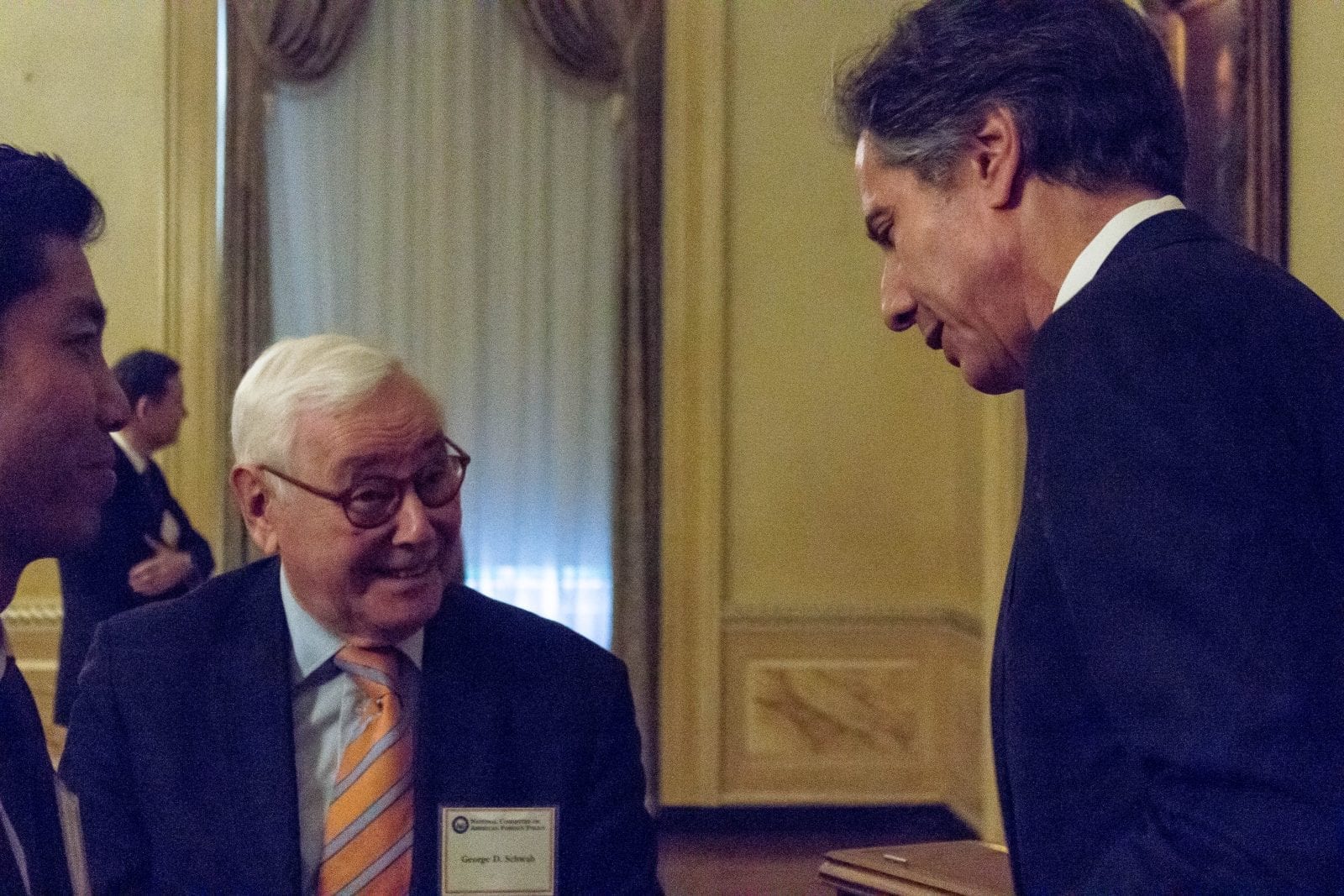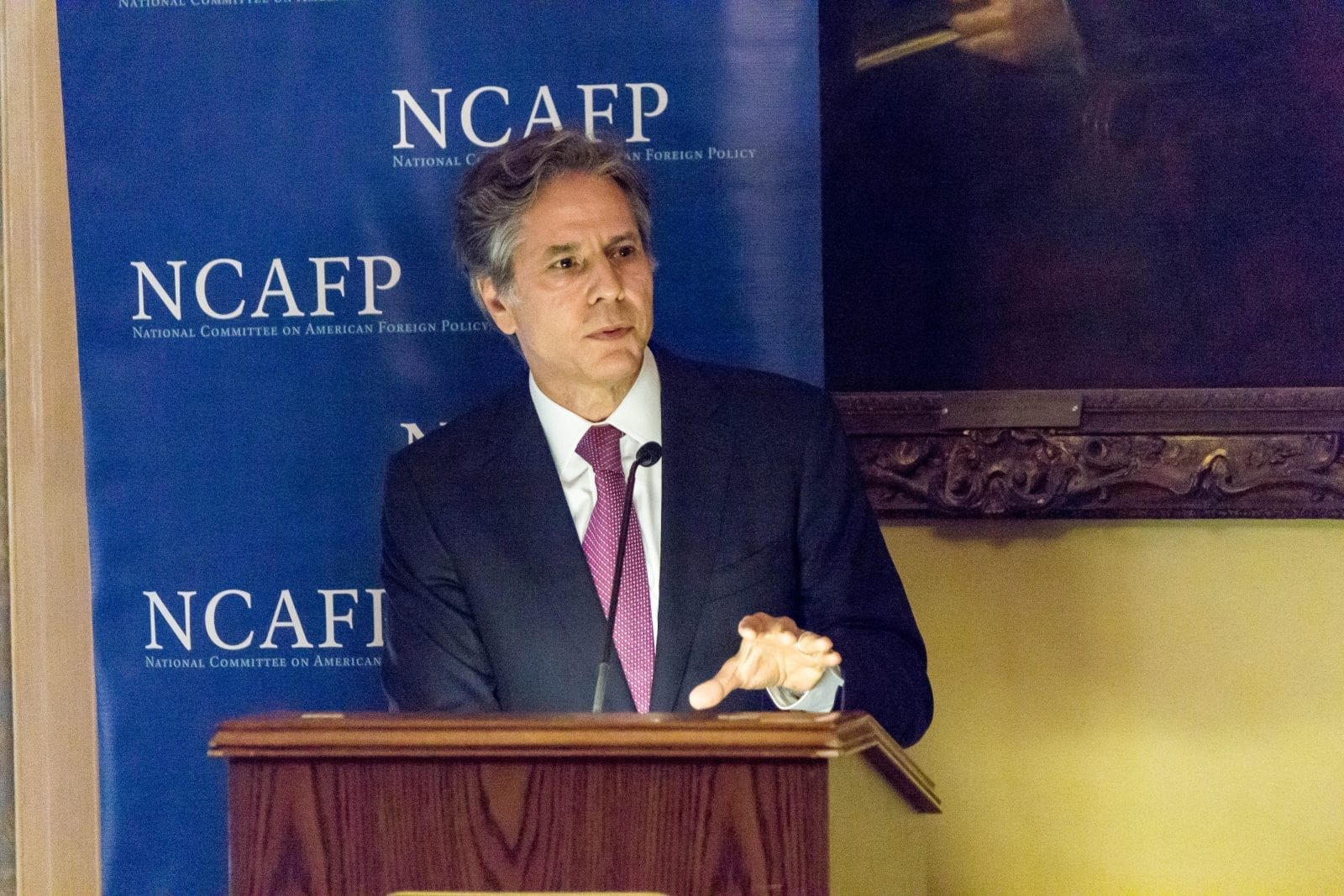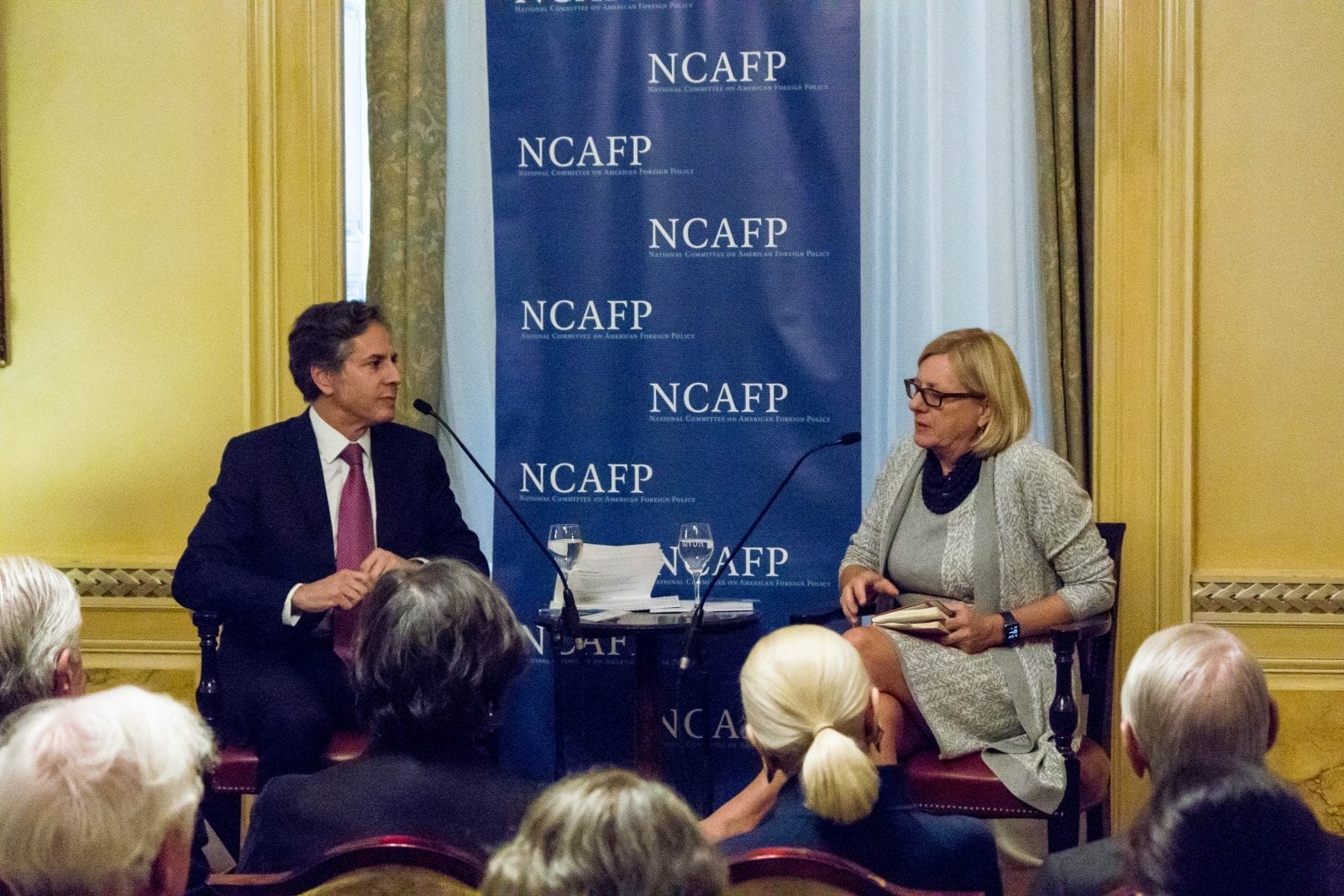On May 24, 2017, the National Committee on American Foreign Policy hosted the Annual Angier Biddle Duke Lecture. This year’s talk was offered by the Honorable Antony J. Blinken, former U.S. Deputy Secretary of State and Deputy National Security Advisor. Mr. Blinken now serves as Managing Director of the Penn Biden Center for Diplomacy and Global Engagement and is concurrently appointed as a Herter/Nitze Distinguished Scholar at Johns Hopkins University SAIS, and a global affairs analyst for CNN. Following his talk, a Q&A session was moderated by the Honorable Nancy E. Soderberg, Vice Chair of the NCAFP.
Established to the honor the memory of past NCAFP president Angier Biddle Duke, this lecture series features distinguished government officials, public figures or thought leaders in the foreign policy community. Duke Lecturers have included General Brent Scowcroft; H.R.H. Prince Zeid Ra’ad Zeid Al-Hussein; Ambassadors Thomas R. Pickering, Frank G. Wisner, John Negroponte, Winston Lord, and Richard C. Holbrooke; and Drs. Aaron David Miller and Walter Russell Mead.
Summary
Mr. Blinken’s talk, Walls or Bridges: What Will Make America Great in the 21st Century?, sought to flesh out the dichotomy that has arisen in the U.S. foreign policy community with regard to metaphors of “wall-building” or “bridge-building” and how they come into play with Administration policies. In an age of ever-streaming information, Mr. Blinken suggested that the same forces that connect people and governments globally simultaneously cause fears of disintegrating borders. Reactions to this sentiment are mixed. On the one hand, there are advocates for taking a defensive international posture, grounded in self-interest. Conversely, others seek deeper global engagement in order enhance understanding and control over the processes that the opposing camp seeks to fortify against. The aforementioned defensive posture is coupled with a protectionist form of nationalism that, according to Mr. Blinken, yields the “wall-building” attitudes that have permeated the American consciousness in recent years. He discussed what might be a more effectual approach: utilizing global engagement as a means of practical prevention.
The 2016 Election in the United States, however, did not seem to indicate support for such an approach. Blinken suggested that domestic engagement would be necessary before looking globally in order to garner support for what he believes to be more effective “bridge-building” initiatives. He envisioned stirring support across the geographic and political spectrum in the United States through campaigns of compassion and heart as an effective means on consensus-building.
He chose three words that best represented how to make the case for further global engagement: 1) listen, 2) defend, 3) amend. Through these, he hopes to make the case for listening to those who have been hurt by globalization, defending in plain language the positives of such a system, and amending the system to help those impacted adjust to new global realities as much as possible. In Mr. Blinken’s estimation, it is incumbent upon the United States to continue to support and strengthen global institutions, else those in the current and future Administrations will need to pay the cost of doing the work of those institutions themselves, or by confronting a power vacuum likely to be filled by malevolent forces.

Mr. Blinken takes time to speak with George Schwab, NCAFP President Emeritus, and other guests after his talk
In the Q&A portion of the evening, many of the guests chose to steer the conversation more regionally. Mr. Blinken addressed specific questions on Syria, North Korea, the Iran nuclear deal and China, among other areas. Here, he lamented some of the key errors made by the previous Administration, particularly with regard to Syria, but expressed hope for the continued success of the Iran nuclear deal, for pursuing diplomacy with North Korea and for mutually-beneficial infrastructure development funded by China (with the large caveat that Chinese-funded infrastructure projects tend to be built with Chinese labor when abroad).



